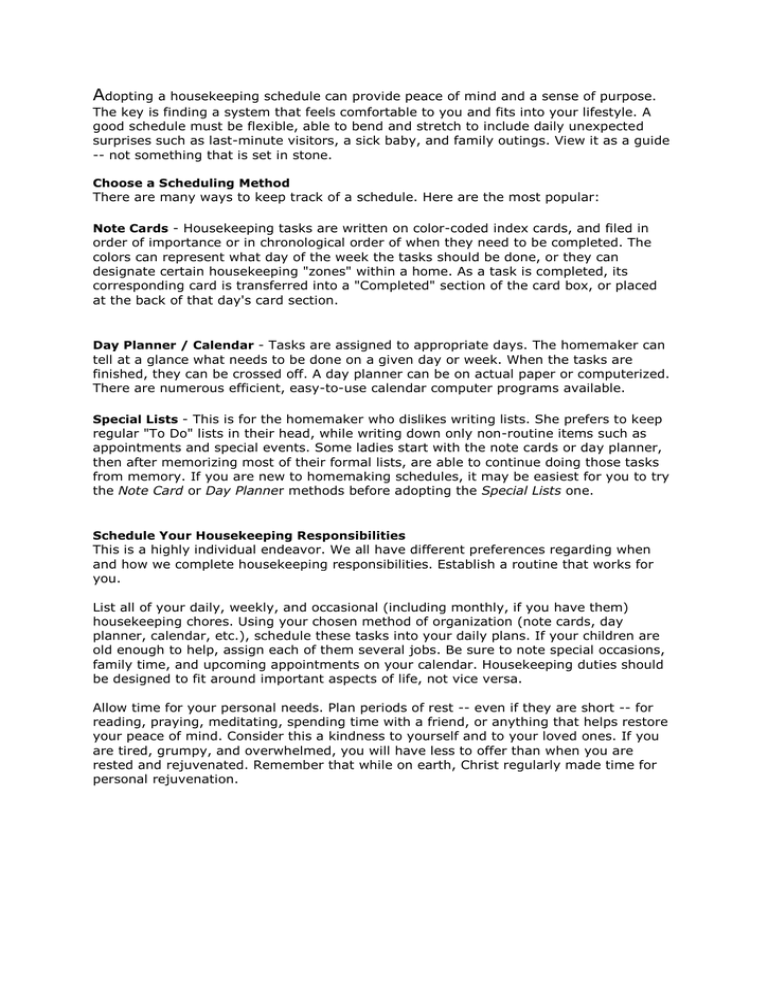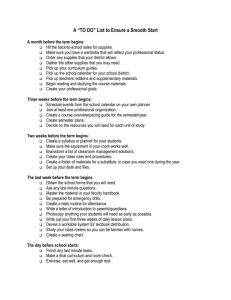A
advertisement

Adopting a housekeeping schedule can provide peace of mind and a sense of purpose. The key is finding a system that feels comfortable to you and fits into your lifestyle. A good schedule must be flexible, able to bend and stretch to include daily unexpected surprises such as last-minute visitors, a sick baby, and family outings. View it as a guide -- not something that is set in stone. Choose a Scheduling Method There are many ways to keep track of a schedule. Here are the most popular: Note Cards - Housekeeping tasks are written on color-coded index cards, and filed in order of importance or in chronological order of when they need to be completed. The colors can represent what day of the week the tasks should be done, or they can designate certain housekeeping "zones" within a home. As a task is completed, its corresponding card is transferred into a "Completed" section of the card box, or placed at the back of that day's card section. Day Planner / Calendar - Tasks are assigned to appropriate days. The homemaker can tell at a glance what needs to be done on a given day or week. When the tasks are finished, they can be crossed off. A day planner can be on actual paper or computerized. There are numerous efficient, easy-to-use calendar computer programs available. Special Lists - This is for the homemaker who dislikes writing lists. She prefers to keep regular "To Do" lists in their head, while writing down only non-routine items such as appointments and special events. Some ladies start with the note cards or day planner, then after memorizing most of their formal lists, are able to continue doing those tasks from memory. If you are new to homemaking schedules, it may be easiest for you to try the Note Card or Day Planner methods before adopting the Special Lists one. Schedule Your Housekeeping Responsibilities This is a highly individual endeavor. We all have different preferences regarding when and how we complete housekeeping responsibilities. Establish a routine that works for you. List all of your daily, weekly, and occasional (including monthly, if you have them) housekeeping chores. Using your chosen method of organization (note cards, day planner, calendar, etc.), schedule these tasks into your daily plans. If your children are old enough to help, assign each of them several jobs. Be sure to note special occasions, family time, and upcoming appointments on your calendar. Housekeeping duties should be designed to fit around important aspects of life, not vice versa. Allow time for your personal needs. Plan periods of rest -- even if they are short -- for reading, praying, meditating, spending time with a friend, or anything that helps restore your peace of mind. Consider this a kindness to yourself and to your loved ones. If you are tired, grumpy, and overwhelmed, you will have less to offer than when you are rested and rejuvenated. Remember that while on earth, Christ regularly made time for personal rejuvenation.



